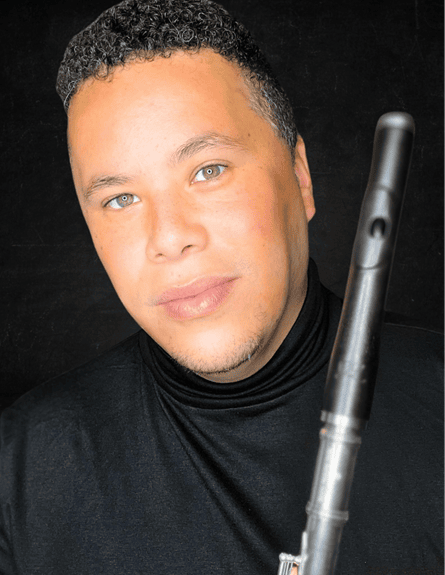/ News Posts / Knowing When to Move On
Knowing When to Move On
A Guide for Music Educators
By NAfME Members José Leonardo Leon, D.M.A. and José Valentino Ruiz, Ph.D.
As educators and practitioners, we’re no strangers to the concept of “paying your dues.” We’ve all heard the stories—or lived them ourselves—of late-night gigs with questionable sound systems, gigs where the “compensation” was a lukewarm slice of pizza, or opportunities that looked good on paper but turned out to be professional quicksand. At some point, though, “paying your dues” stops being a rite of passage and starts feeling like a never-ending toll booth on the highway to burnout.
So, how do we recognize when it’s time for ourselves—or our students—to move on from an opportunity that was once valuable but no longer serves its purpose? Let’s dig into how we can navigate these decisions with humor, grace, and an eye toward building a brighter, more balanced future.
Signs It’s Time to Move On
Not every opportunity is meant to last forever, and that’s okay. Picture this scenario: One of your students lands their first steady gig playing in a local band. They’re excited, they’re learning, but a year in, they’re still getting paid in “exposure” (and maybe that same lukewarm pizza). The enthusiasm fades, the growth stops, and they start to dread rehearsals. Sound familiar? Or maybe you’ve been there yourself—a teaching role where the administrative duties pile up while your creativity dwindles. Perhaps the compensation doesn’t reflect the effort you’re putting in, or the opportunity no longer aligns with your career goals. These are all signs that it might be time to reevaluate. Loyalty is admirable, but it shouldn’t come at the expense of well-being or growth. Moving on isn’t about quitting—it’s about making space for something better.
Prioritizing What Matters
Imagine sitting down with a student who’s debating whether to leave a long-standing gig. You ask, “What’s this opportunity bringing to your life? Is it helping you grow? Are you excited about it?” They pause, then respond, “Well, it’s a gig.” Sometimes, that’s the answer—a gig is just a gig. But as educators and practitioners, we know that a fulfilling career in music should offer more than that. Help your students (or yourself) evaluate whether an opportunity contributes to long-term goals, fosters meaningful connections, or provides enriching experiences. If it’s causing more stress than joy, it might be time to move on. And let’s not forget balance. If a gig or role is demanding too much time and energy, leaving no space for personal health or relationships, it’s worth reassessing. After all, nobody looks back on their career fondly reminiscing about burnout.
Broader Applications of Moving On
It’s not just gigs that require this type of decision-making. Maybe you’re an educator in a role where the curriculum feels like it’s been chiseled in stone since the 1980s, and your attempts to bring in innovative ideas have hit a wall. Or you’re part of a collaborative project that once felt exciting but now feels like everyone’s just going through the motions. Transitions aren’t just about walking away—they’re about evolving. For some, this might mean leaving a teaching position to explore consulting or administrative leadership. For others, it could mean stepping back from a community role to focus on personal projects. Recognizing these shifts is an essential part of long-term growth.
Navigating Emotional Challenges
Leaving an opportunity often comes with guilt. You may worry about letting others down or question whether you’re making the right decision. However, feeling guilty doesn’t mean you’re wrong—it means you care. Research by Basak and Ghosh (2017) found that guilt, when managed constructively, can serve as a motivator for personal and professional development, fostering resilience and adaptability during transitions. Similarly, a study by Shepherd and Cardon (2020) emphasizes the importance of reframing guilt as a reflection of one’s commitment to others rather than as a negative emotion, allowing individuals to channel it into purposeful growth. Reframe the transition as an act of growth rather than abandonment.
It’s okay to grieve the end of an era—research by O’Neill and Rothbard (2017) on work-life transitions highlights that processing these emotions is critical for fostering psychological well-being. Once the door closes, focus on what lies ahead. Lean on mentors, peers, and loved ones for support, and don’t hesitate to take time for self-reflection and self-care. Additionally, Brown et al. (2018) point out that self-compassion during periods of transition can help mitigate feelings of guilt and promote a more positive outlook on the future. Thus, viewing transitions as opportunities for reinvention can facilitate space for renewed purpose, personal growth, and professional fulfillment.
Success Stories and Hypothetical Scenarios
Take one of your students—we’ll call her “Ana.” She’s been playing with the same jazz trio for three years. At first, it was an incredible opportunity to grow her chops and build her confidence. But now? She’s feeling stuck. With some guidance, she takes the leap to leave the trio and starts collaborating with a local composer on original work. Six months later, she’s performing at festivals and has found new joy in her craft.
Or think about “Tocayo,” a practitioner who spent years juggling teaching gigs at three different schools. They decided to focus on one institution that allowed them to expand their curriculum and mentor students more deeply. The result? Less burnout, more impact, and a healthier work-life balance. The point is, transitions are opportunities to write the next chapter—not just close the book.
How to Transition Gracefully
When it’s time to move on, professionalism is key. Think of it like this: You’re not ghosting your old gig; you’re leaving the door cracked open for future collaborations. Express gratitude for the opportunity, even if it wasn’t perfect. For instance, “I’ve learned so much here, and I’m grateful for the experience.” Frame your departure as a step forward: “I’m pursuing opportunities that align more closely with my current goals.” And don’t underestimate the power of a smooth transition—helping find your replacement or tying up loose ends ensures you leave on good terms.
The Role of Mentorship
As mentors, we have a responsibility to help our students and colleagues navigate these pivotal decisions. This means fostering open dialogue, sharing personal experiences, and encouraging them to take risks when the time feels right. For example, if a student is clinging to a role out of fear rather than genuine enthusiasm, a simple conversation can make a world of difference. Asking, “What excites you about this opportunity?” or “How do you see this fitting into your goals?” can help them find clarity and build confidence.
The Upside of Moving On
Stepping away from an opportunity that no longer fits can be one of the most liberating decisions you’ll make. It opens the door to projects that excite you, collaborations that inspire you, and growth that fulfills you. For educators, it allows you to model resilience and adaptability for your students. For practitioners, it reignites the passion that brought you to music in the first place. Moving on isn’t about giving up—it’s about giving yourself the chance to grow. When we help our students and ourselves prioritize what truly matters, we position ourselves to say yes to opportunities that align with our vision and values. At the end of the day, our careers are journeys, not destinations. Every step—whether it’s staying the course or moving on—teaches us something valuable. Let’s embrace these moments of transition with curiosity and courage, knowing that every decision brings us closer to the artists, educators, and individuals we aspire to be.
References
Ashforth, B. E. (2001). Role transitions in organizational life: An identity-based perspective. Mahwah, NJ: Lawrence Erlbaum Associates.
Neff, K. D. (2003). Self-compassion: An alternative conceptualization of a healthy attitude toward oneself. Self and Identity, 2(2), 85–101. https://doi.org/10.1080/15298860309032
Shepherd, D. A., & Cardon, M. S. (2009). Negative emotional reactions to project failure and the self-compassion to learn from the experience. Journal of Management Studies, 46(6), 923–949. https://doi.org/10.1111/j.1467-6486.2009.00821.x
Tangney, J. P., Stuewig, J., & Mashek, D. J. (2007). Moral emotions and moral behavior. Annual Review of Psychology, 58, 345–372. https://doi.org/10.1146/annurev.psych.56.091103.070145
About the authors:
 NAfME member José Leonardo Leon, D.M.A. is a Latin GRAMMY® Award-winning trombonist and a multi-Global Music® Award-winning composer, producer, and performing artist. Dr. Leon serves as Assistant Professor of Music Entrepreneurship and Trombone at Florida Atlantic University, where he also founded and coordinates the Art Performance and Entrepreneurship Initiative. This innovative program offers certificates and minors within the discipline, empowering students to merge artistry with business acumen. For more information, visit www.joseleonardoleon.com and follow him on Instagram: @docjlleonmusic.
NAfME member José Leonardo Leon, D.M.A. is a Latin GRAMMY® Award-winning trombonist and a multi-Global Music® Award-winning composer, producer, and performing artist. Dr. Leon serves as Assistant Professor of Music Entrepreneurship and Trombone at Florida Atlantic University, where he also founded and coordinates the Art Performance and Entrepreneurship Initiative. This innovative program offers certificates and minors within the discipline, empowering students to merge artistry with business acumen. For more information, visit www.joseleonardoleon.com and follow him on Instagram: @docjlleonmusic.
 NAfME member José Valentino Ruiz, Ph.D. is a Multi-Latin GRAMMY® and EMMY® Award-winning artist, composer, producer, audio engineer, and business executive. He serves as the CEO of JV Music Enterprises LLC, a company recognized with prestigious accolades including Inc. Magazine’s Best in Business® Award and the Power Partner® Award for B2B Services. The company specializes in providing world-class production, performance, and consultation services. At the University of Florida, Dr. Ruiz is the Founder & Director of Music Business & Entrepreneurship Program, where he is a tenured Associate Professor of MBE and Affiliate Professor of Arts, Migration, and Entrepreneurship. Learn more at www.josevalentino.com and follow him on Instagram: @josevalentinomusic.
NAfME member José Valentino Ruiz, Ph.D. is a Multi-Latin GRAMMY® and EMMY® Award-winning artist, composer, producer, audio engineer, and business executive. He serves as the CEO of JV Music Enterprises LLC, a company recognized with prestigious accolades including Inc. Magazine’s Best in Business® Award and the Power Partner® Award for B2B Services. The company specializes in providing world-class production, performance, and consultation services. At the University of Florida, Dr. Ruiz is the Founder & Director of Music Business & Entrepreneurship Program, where he is a tenured Associate Professor of MBE and Affiliate Professor of Arts, Migration, and Entrepreneurship. Learn more at www.josevalentino.com and follow him on Instagram: @josevalentinomusic.
Interested in reprinting this article? Please review the reprint guidelines.
The National Association for Music Education (NAfME) provides a number of forums for the sharing of information and opinion, including blogs and postings on our website, articles and columns in our magazines and journals, and postings to our Amplify member portal. Unless specifically noted, the views expressed in these media do not necessarily represent the policy or views of the Association, its officers, or its employees.
Published Date
February 28, 2025
Category
- Careers
- Lifelong Learning
- Music Education Profession
- Teacher Self Care
Copyright
February 28, 2025. © National Association for Music Education (NAfME.org)






